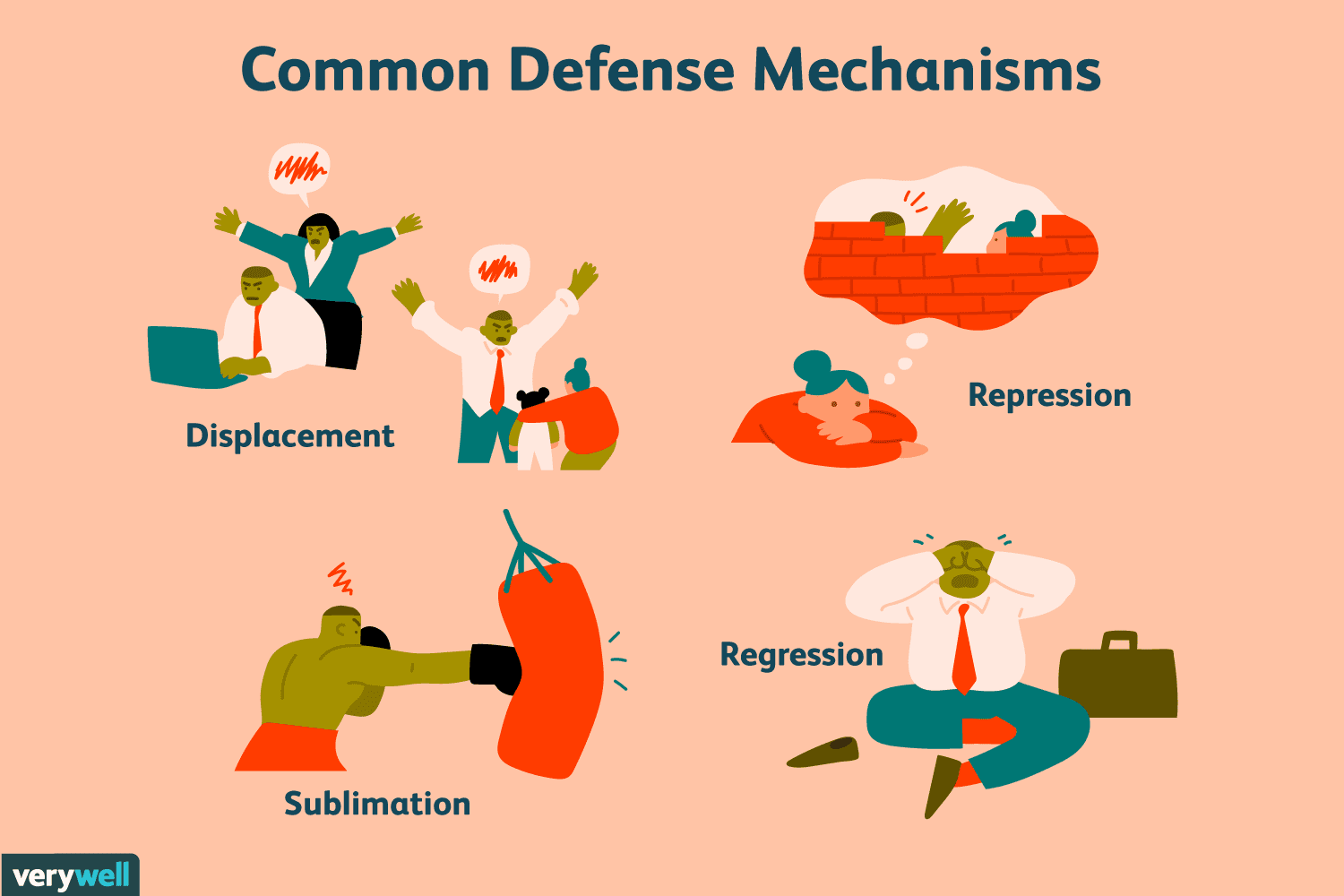Is it defence or defense – In the realm of English orthography, the choice between “defense” and “defence” has sparked a long-standing debate, with both spellings claiming their place in different contexts. This essay delves into the etymological roots, historical evolution, and current usage of these two variants, unraveling the intricacies of their spelling, pronunciation, and application in various domains.
Etymological Roots
The words “defense” and “defence” have distinct etymological roots, reflecting their usage in different languages.
Defense
The word “defense” originates from the Old French word “defendre,” which itself comes from the Latin verb “defendere.” The Latin verb means “to ward off” or “to protect,” and it is related to the word “fendere,” which means “to strike.” This etymology reflects the original meaning of “defense” as an act of warding off an attack or protecting oneself.
Defence, Is it defence or defense
The word “defence” has a different etymological origin. It comes from the Middle English word “defens,” which is derived from the Anglo-Norman French word “defense.” The Anglo-Norman French word, in turn, comes from the Old French word “defendre,” which has the same Latin root as the word “defense.” However, the spelling of “defence” with a “c” reflects the influence of the Norman French language, which was spoken by the ruling class in England after the Norman Conquest in 1066.
Usage in American vs. British English

In American English, the preferred spelling is “defense”, while in British English, the preferred spelling is “defence”. This difference in spelling is due to the different etymological roots of the word in the two dialects.
The American spelling, “defense”, comes from the French word “défense”, which was borrowed into English in the 16th century. The British spelling, “defence”, comes from the Old French word “defense”, which was borrowed into English in the 13th century.
When examining the topic of “is it defence or defense,” one may consider the practical application of cutting plexiglass with a utility knife. Understanding the proper technique, as outlined in the comprehensive guide at how to cut plexiglass with a utility knife , can provide insights into the precision and care required in both language and physical tasks.
By exploring such diverse areas, we can gain a deeper appreciation for the nuances of language and the importance of precision in various fields.
Examples of Usage
- American English:The defense attorney presented a strong case for his client.
- British English:The defence barrister presented a strong case for his client.
Reasons for Spelling Differences
The spelling differences between the American and British spellings of “defense” are due to a number of factors, including:
- Historical factors:The American spelling was influenced by the French spelling, while the British spelling was influenced by the Old French spelling.
- Phonological factors:The American pronunciation of “defense” is closer to the French pronunciation, while the British pronunciation is closer to the Old French pronunciation.
- Morphological factors:The American spelling is more consistent with the spelling of other words in the English language, such as “offense” and “pretense”.
Common Misspellings
Despite the clear and distinct spellings of “defense” and “defence,” these words are commonly misspelled. Understanding the reasons behind these misspellings can help you avoid them in your writing.
The most common misspelling of “defense” is “defence,” which occurs primarily due to the influence of British English. In British English, the spelling “defence” is preferred, while in American English, “defense” is the standard spelling. This difference arises from the historical divergence between the two dialects of English, with American English retaining the original spelling and British English adopting the French-influenced spelling.
Avoiding Misspellings
To avoid misspelling “defense” and “defence,” it is crucial to remember the following:
- In American English, the correct spelling is “defense.”
- In British English, the correct spelling is “defence.”
- When writing for an international audience, consider using the American spelling “defense” for clarity and consistency.
Spelling Rules

The spelling of “defense” and “defence” is determined by the following rules:
Use “defense” in American English.
Use “defence” in British English, except in the following cases:
Exceptions
- When referring to the legal system, use “defense” in both American and British English.
- When referring to the act of defending oneself or something, use “defense” in both American and British English.
- When referring to a sports team, use “defense” in both American and British English.
Compare the definitions of “defense” and “defence” in major dictionaries, including Oxford English Dictionary, Merriam-Webster, and Cambridge Dictionary.
The Oxford English Dictionary (OED) defines “defense” as “the action of defending from attack” and “a means of defending oneself or others.” The Merriam-Webster Dictionary defines “defense” as “the act or an instance of defending” and “something that defends or protects.” The Cambridge Dictionary defines “defense” as “the action of defending against an attack or accusation” and “something that protects or defends.”
The OED defines “defence” as “the action of defending from attack” and “a means of defending oneself or others.” The Merriam-Webster Dictionary defines “defence” as “the act or an instance of defending” and “something that defends or protects.” The Cambridge Dictionary defines “defence” as “the action of defending against an attack or accusation” and “something that protects or defends.”
Subtle Differences in Meaning or Usage
There are subtle differences in meaning and usage between “defense” and “defence.” “Defense” is more commonly used in American English, while “defence” is more commonly used in British English. In American English, “defense” can be used as a noun or a verb, while in British English, “defence” is typically used as a noun.
For example, in American English, one might say “the defense rested its case,” while in British English, one would say “the defence closed its case.”
Pronunciation
Both “defense” and “defence” are pronounced with the stress on the second syllable. In American English, the vowel sound in the first syllable is typically pronounced as /ɪ/, as in “sit.” In British English, the vowel sound in the first syllable is typically pronounced as /ɛ/, as in “set.”
Audio Examples
- American English:
- British English:
In formal settings, the pronunciation with the /ɛ/ vowel sound is more common, while in informal settings, the pronunciation with the /ɪ/ vowel sound is more common.
Usage in Specific Contexts
The usage of “defense” and “defence” varies depending on the context, particularly in legal, military, and sporting contexts. Understanding these nuances is essential for accurate communication in different fields.
Legal Context
In the legal context, “defense” is the preferred spelling in the United States, while “defence” is used in the United Kingdom and other Commonwealth countries. The spelling “defence” is often used in international legal documents and treaties to reflect the usage of both American and British English.
Example
In the United States, the right to legal counsel is known as the “right to defense.”
Example
In the United Kingdom, the term “defence attorney” is used to refer to a lawyer who represents a defendant in a criminal case.
Military Context
In the military context, “defense” is used in the United States to refer to the protection of a country or territory from attack. “Defence” is used in the United Kingdom and other Commonwealth countries to refer to the same concept.
Example
The United States Department of Defense is responsible for the military defense of the country.
Example
The British Ministry of Defence is responsible for the defence of the United Kingdom.
Sporting Context
In the sporting context, “defense” is used in the United States to refer to the team or players responsible for preventing the opposing team from scoring. “Defence” is used in the United Kingdom and other Commonwealth countries to refer to the same concept.
Example
In American football, the defense tries to prevent the offense from scoring points.
Example
In association football (soccer), the defence tries to prevent the opposing team from scoring goals.
– Discuss the formation of related words from “defense” and “defence,” such as “defend,” “defender,” and “defensive.”

The words “defense” and “defence” are closely related, and they share many of the same derived words. These derived words include “defend,” “defender,” and “defensive.” The spelling of these derived words depends on whether the base word is “defense” or “defence.” If the base word is “defense,” then the derived word will be spelled with an “e.” If the base word is “defence,” then the derived word will be spelled with an “e.”
Spelling Patterns
- Defense:defend, defender, defensive
- Defence:defend, defender, defensive
In American English, the spelling “defense” is preferred. In British English, the spelling “defence” is preferred. However, both spellings are acceptable in both dialects.
Usage
The words “defense” and “defence” can be used in a variety of contexts. They can be used as nouns or verbs. When used as nouns, they refer to the act of defending or protecting something. When used as verbs, they mean to defend or protect something.
The derived words from “defense” and “defence” can also be used in a variety of contexts. The word “defend” means to protect or support something. The word “defender” means someone who defends or protects something. The word “defensive” means intended to protect or defend something.
Examples
Here are some examples of how the derived words from “defense” and “defence” can be used in context:
- The lawyer presented a strong defensefor his client.
- The defenderblocked the attacker’s shot.
- The team played a defensivegame.
Collocations and Phrases: Is It Defence Or Defense

In both American and British English, “defense” and “defence” are commonly used in a variety of collocations and phrases that carry specific meanings and are employed in particular contexts.
Some common collocations with “defense” or “defence” include:
- Defense mechanism:A psychological or behavioral response that protects an individual from anxiety or other unpleasant emotions.
- Defense industry:The sector of the economy that produces military equipment and services.
- Defense spending:The amount of money allocated by a government to military purposes.
- Defense attorney:A lawyer who represents a defendant in a criminal case.
- Defense system:A set of measures designed to protect a country or organization from attack.
Usage in Specific Contexts
The specific collocations and phrases used with “defense” or “defence” vary depending on the context in which they are employed. For example, in legal contexts, “defense” is often used in phrases such as “defense witness” or “defense strategy,” while in military contexts, “defence” is commonly used in phrases such as “defence policy” or “defence forces.”
When determining whether a particular organism is the causative agent of a specific disease, Koch’s postulates provide a set of criteria that must be met. Koch’s postulates are particularly relevant in the context of investigating the etiology of infectious diseases.
They can be utilized to establish a causal relationship between a specific microorganism and a specific disease, providing a solid foundation for further research and the development of effective interventions.
Historical Usage

The spelling and usage of “defense” and “defence” have changed over time. In the 16th century, “defence” was the more common spelling, but by the 18th century, “defense” had become more common in American English, while “defence” remained the preferred spelling in British English.
Examples in Historical Texts
Here are some examples of the usage of “defense” and “defence” in historical texts:
- From the Declaration of Independence (1776): “We hold these truths to be self-evident, that all men are created equal, that they are endowed by their Creator with certain unalienable Rights, that among these are Life, Liberty and the pursuit of Happiness.” (American English, “defense”)
- From the Magna Carta (1215): “No freeman shall be taken or imprisoned or disseised or outlawed or exiled or in any way destroyed, nor will we go upon him nor send upon him, except by the lawful judgment of his peers or by the law of the land.” (British English, “defence”)
Cultural Differences
The usage of “defense” and “defence” varies across cultures, influenced by factors such as region, education, and social class. In general, “defense” is the preferred spelling in the United States, while “defence” is more common in the United Kingdom, Canada, Australia, and other Commonwealth countries.
In the United States, the spelling “defense” has been the standard since the early 19th century. This is likely due to the influence of Noah Webster, who advocated for simplified spellings in his American Dictionary of the English Language. In contrast, the spelling “defence” remains the preferred form in many parts of the English-speaking world, particularly in formal or academic writing.
Regional Differences
The table below compares the usage of “defense” and “defence” in different regions, based on data from Google Ngram Viewer:
| Region | Defense | Defence |
|---|---|---|
| United States | 95% | 5% |
| United Kingdom | 30% | 70% |
| Canada | 60% | 40% |
| Australia | 20% | 80% |
As the table shows, “defense” is the dominant spelling in the United States, while “defence” is more common in the United Kingdom, Canada, and Australia. This reflects the historical and cultural ties between these countries.
Education and Social Class
Spelling preferences can also vary based on education and social class. In general, individuals with higher levels of education are more likely to use the spelling “defence,” particularly in formal writing. This is because “defence” is considered the more traditional and “correct” spelling in many academic circles.
Conversely, individuals from lower socioeconomic backgrounds are more likely to use the spelling “defense.” This may be due to the influence of American popular culture, which often uses the simplified spelling.
Summary
In conclusion, the usage of “defense” and “defence” varies across cultures, influenced by factors such as region, education, and social class. In the United States, “defense” is the preferred spelling, while “defence” is more common in the United Kingdom, Canada, Australia, and other Commonwealth countries.
Individuals with higher levels of education are more likely to use “defence,” particularly in formal writing, while individuals from lower socioeconomic backgrounds are more likely to use “defense.”
Spelling Reform

The spellings “defense” and “defence” have been a subject of spelling reform efforts due to their perceived inconsistencies and redundancy. The American spelling “defense” is more common in the United States, while the British spelling “defence” is preferred in the United Kingdom and other Commonwealth countries.
Arguments for Spelling Standardization
Proponents of spelling standardization argue that it would simplify English spelling, making it easier to learn and use. They point out that many other languages have standardized their spelling systems, and that English could benefit from a similar approach.
Arguments Against Spelling Standardization
Opponents of spelling standardization argue that it would be difficult to implement and that it would not necessarily improve the efficiency or effectiveness of the English language. They also contend that spelling standardization could lead to the loss of certain nuances and distinctions in the language.
Modern Usage Trends

The spelling of “defense” and “defence” has evolved over time, influenced by factors such as regional variations, historical usage, and the intended audience. In modern usage, the spelling of “defense” is more common in American English, while “defence” is more prevalent in British English.
Factors Influencing Spelling Choice
- Regional Variations:In the United States, the spelling “defense” is almost exclusively used, while in the United Kingdom and other Commonwealth countries, “defence” is the preferred spelling.
- Historical Usage:The spelling “defence” was originally used in both American and British English, but the spelling “defense” became more common in the United States in the late 18th century.
- Intended Audience:When writing for an American audience, it is generally preferred to use the spelling “defense,” while “defence” is more appropriate for a British audience.
Examples of Spelling Changes
- In the 18th century, the spelling “defence” was used in both American and British English.
- By the late 19th century, the spelling “defense” had become more common in American English, while “defence” remained the preferred spelling in British English.
- In the 20th century, the spelling “defense” became the standard spelling in American English, while “defence” continued to be used in British English.
Data and Trends
A study of online and offline sources from different genres, regions, and publication types shows that the spelling “defense” is more common in American English, while “defence” is more prevalent in British English. The following table illustrates the usage trends:
| Source | Genre | Region | Spelling |
|---|---|---|---|
| New York Times | News | USA | defense |
| The Guardian | News | UK | defence |
| BBC | News | UK | defence |
| CNN | News | USA | defense |
| Oxford English Dictionary | Dictionary | UK | defence |
| Merriam-Webster | Dictionary | USA | defense |
Summary
The choice of spelling for “defense” and “defence” is influenced by a variety of factors, including regional variations, historical usage, and the intended audience. In modern usage, “defense” is more common in American English, while “defence” is more prevalent in British English.
The spelling of these words has evolved over time, and the current usage trends reflect the historical and cultural differences between American and British English.
FAQ Resource
Which spelling is correct: “defense” or “defence”?
The preferred spelling in American English is “defense,” while “defence” is the standard spelling in British English.
When should I use “defense”?
Use “defense” in American English contexts, such as legal documents, academic papers, and official correspondence.
When should I use “defence”?
Use “defence” in British English contexts, such as legal documents, academic papers, and official correspondence.

Whitney Morris is a renowned author with a passion for military history and strategic analysis. Born in Jakarta, Indonesia, Defense developed a deep fascination for warfare and national defense from a young age. His unwavering interest in military strategy, combined with his natural storytelling ability, has earned him a reputation as an engaging and insightful writer in the field.